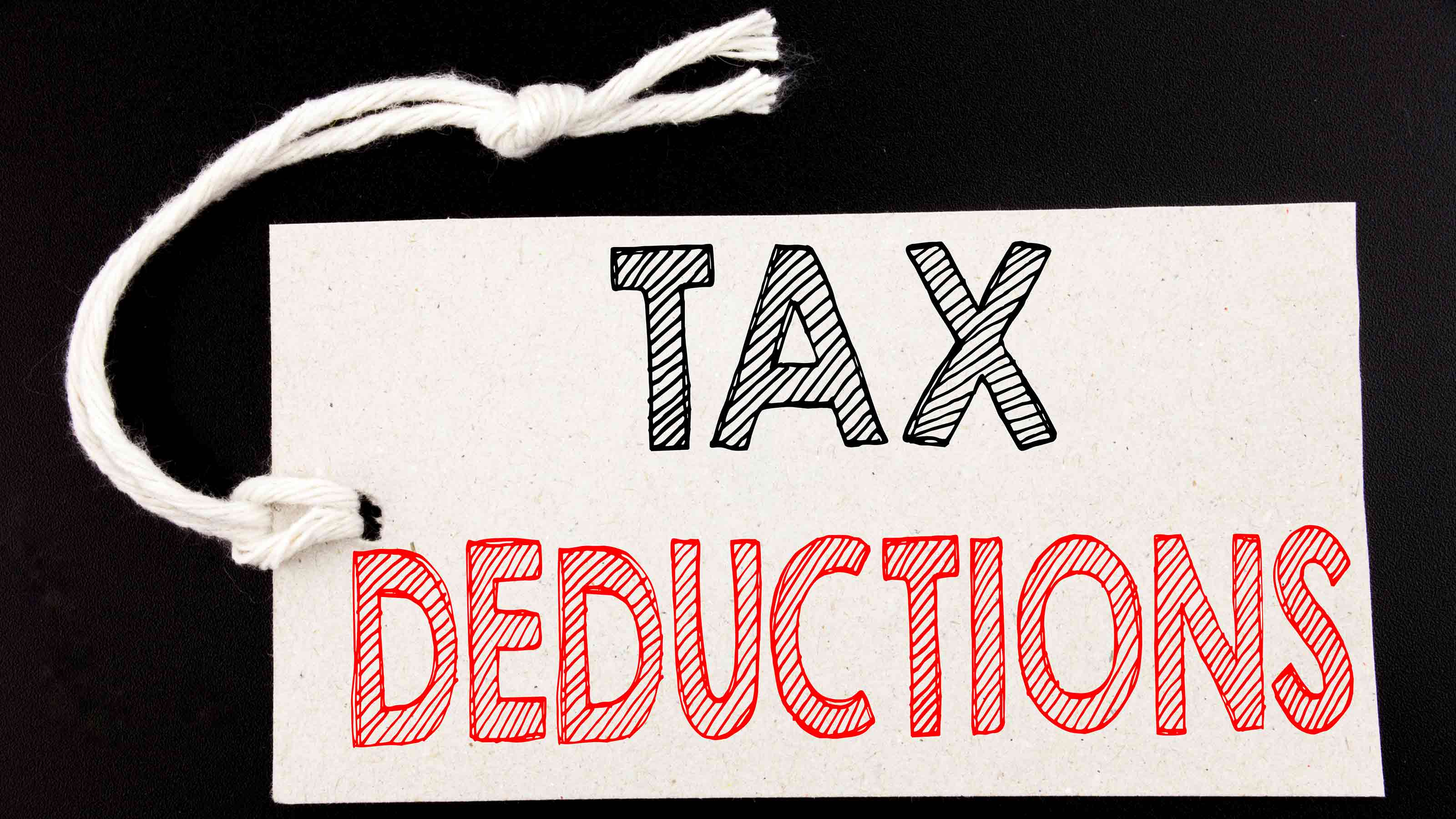Goodbye Capital Gains Tax Breaks
Momentum is building for a tax code overhaul, and lower taxes on stock transactions could be doomed.

Profit and prosper with the best of Kiplinger's advice on investing, taxes, retirement, personal finance and much more. Delivered daily. Enter your email in the box and click Sign Me Up.
You are now subscribed
Your newsletter sign-up was successful
Want to add more newsletters?

Delivered daily
Kiplinger Today
Profit and prosper with the best of Kiplinger's advice on investing, taxes, retirement, personal finance and much more delivered daily. Smart money moves start here.

Sent five days a week
Kiplinger A Step Ahead
Get practical help to make better financial decisions in your everyday life, from spending to savings on top deals.

Delivered daily
Kiplinger Closing Bell
Get today's biggest financial and investing headlines delivered to your inbox every day the U.S. stock market is open.

Sent twice a week
Kiplinger Adviser Intel
Financial pros across the country share best practices and fresh tactics to preserve and grow your wealth.

Delivered weekly
Kiplinger Tax Tips
Trim your federal and state tax bills with practical tax-planning and tax-cutting strategies.

Sent twice a week
Kiplinger Retirement Tips
Your twice-a-week guide to planning and enjoying a financially secure and richly rewarding retirement

Sent bimonthly.
Kiplinger Adviser Angle
Insights for advisers, wealth managers and other financial professionals.

Sent twice a week
Kiplinger Investing Weekly
Your twice-a-week roundup of promising stocks, funds, companies and industries you should consider, ones you should avoid, and why.

Sent weekly for six weeks
Kiplinger Invest for Retirement
Your step-by-step six-part series on how to invest for retirement, from devising a successful strategy to exactly which investments to choose.
Tax breaks for capital gains and dividends are likely to end by 2015, as lawmakers look for ways to broaden the tax base, allowing income tax rates on individuals to be cut. There is precedent for this — the tax break for long-term capital gains was axed in 1986, the last time that lawmakers significantly reformed the tax code.
Tax overhaul won't happen swiftly. Lawmakers won't have time to complete tax reform until 2014, and when they do finish it, the effective date probably will be prospective, so changes aren't likely to occur until 2015. There will be plenty of time to mull the impact on your investment portfolio and contemplate actions to minimize the tax wallop.
But discussions will intensify in the coming months. One reason: Senator Max Baucus (D-MT), who heads the Senate committee responsible for writing tax laws, has announced that he'll leave the Senate when his term ends at the end of 2014. Look for him to push hard for tax reform before he leaves, making a revamped tax code his policymaking legacy.
From just $107.88 $24.99 for Kiplinger Personal Finance
Become a smarter, better informed investor. Subscribe from just $107.88 $24.99, plus get up to 4 Special Issues

Sign up for Kiplinger’s Free Newsletters
Profit and prosper with the best of expert advice on investing, taxes, retirement, personal finance and more - straight to your e-mail.
Profit and prosper with the best of expert advice - straight to your e-mail.
In the end, we expect long-term capital gains and dividends to be taxed as ordinary income — a big change from the 20% maximum rate they now incur. If President Obama succeeds in winning a top income tax rate on individuals of more than 28%, however, it's possible that the maximum rate on long-term capital gains and dividends will be limited to 28%.
Consider taking gains before 2015 to lock in the lower rate currently in place. But be careful not to let the tax tail wag the investment dog. Tax savings aren't the only consideration when culling your portfolio; your moves should also make financial sense. Note that we expect taxwriters to keep the stepped-up basis rule for inherited assets, so 100% of pre-death appreciation on those assets will escape income tax when the heirs sell, regardless of the capital gains rate.
Take care in engaging in installment sales before then. The 1986 law provided that installments received after the capital gains rate rose weren't protected, even though the sale occurred before the rate change. We expect that a similar rule will be passed this time, too.
Weigh the impact on succession plans for family firms. Corporate redemptions of shareholders' stock will be hit. Family firms hoping to redeem stock of senior owners to shift control to the next generation will need to take that into account.
Keep in mind that the relative advantages and disadvantages of components in your portfolio may need reevaluating. Dividend paying stocks will lose their tax-favored status if dividends are taxed at ordinary income rates. And there will be no tax disadvantage for having growth stock in retirement plans. Without a capital gains preference, it won't matter that appreciation on the stock will be taxed as ordinary income when distributed to the owner of the retirement plan or IRA.
And it's worth noting one other tax reform proposal that affects investors: Stock sellers could lose the right to direct that the highest-basis stock be sold first. They may be forced to use the average basis of their shares to compute the gain or loss recognized on a sale, rather than use the specific identification method. The tax reform plan drafted in the House includes such a provision, and we think it has a good chance of making it into law.
Profit and prosper with the best of Kiplinger's advice on investing, taxes, retirement, personal finance and much more. Delivered daily. Enter your email in the box and click Sign Me Up.

Joy is an experienced CPA and tax attorney with an L.L.M. in Taxation from New York University School of Law. After many years working for big law and accounting firms, Joy saw the light and now puts her education, legal experience and in-depth knowledge of federal tax law to use writing for Kiplinger. She writes and edits The Kiplinger Tax Letter and contributes federal tax and retirement stories to kiplinger.com and Kiplinger’s Retirement Report. Her articles have been picked up by the Washington Post and other media outlets. Joy has also appeared as a tax expert in newspapers, on television and on radio discussing federal tax developments.
-
 Ask the Tax Editor: Federal Income Tax Deductions
Ask the Tax Editor: Federal Income Tax DeductionsAsk the Editor In this week's Ask the Editor Q&A, Joy Taylor answers questions on federal income tax deductions
-
 States With No-Fault Car Insurance Laws (and How No-Fault Car Insurance Works)
States With No-Fault Car Insurance Laws (and How No-Fault Car Insurance Works)A breakdown of the confusing rules around no-fault car insurance in every state where it exists.
-
 7 Frugal Habits to Keep Even When You're Rich
7 Frugal Habits to Keep Even When You're RichSome frugal habits are worth it, no matter what tax bracket you're in.
-
 Holiday Shopping Tax Tips for Business Owners
Holiday Shopping Tax Tips for Business OwnersTax Tips Maximize your year-end savings through these key deductions to reduce your 2025 business tax bill.
-
 Tax-Advantaged Qualified Small Business Stock
Tax-Advantaged Qualified Small Business StockSmall Business If you own stock that meets the qualified small business stock (QSBS) rules, up to 100% of the gain on the sale of the shares is tax-free.
-
 IRS Gives Truckers a Tax Break in Response to the Colonial Pipeline Shutdown
IRS Gives Truckers a Tax Break in Response to the Colonial Pipeline ShutdownTax Breaks The tax penalty for using dyed diesel fuel for highway use is temporarily suspended.
-
 "Above-the-Line" Deductions for Your 2021 Tax Return
"Above-the-Line" Deductions for Your 2021 Tax ReturnTax Breaks If, like most people, you claim the standard deduction instead of itemized deductions on your return, there are still many other tax deductions available that could save you a lot of money.
-
 Kiplinger's 2020 Election Forecast
Kiplinger's 2020 Election ForecastPolitics For nearly a century, The Kiplinger Letter has forecasted the outcome of presidential elections to keep readers informed of what's coming and what it means for them. Here's our call for 2020.
-
 The Employee Retention Tax Credit Helps Keep Workers Working
The Employee Retention Tax Credit Helps Keep Workers WorkingTax Breaks The credit is worth up to $5,000 per paid employee for businesses financially harmed by the coronavirus pandemic that continue to keep employees on the payroll.
-
 7 CARES Act Tax Breaks for Businesses
7 CARES Act Tax Breaks for BusinessesTax Breaks No matter what business you're in, there's probably at least one CARES Act tax breaks that can improve your bottom line and help you stay afloat.
-
 Retirees, No Tax Deduction for Hobby Losses
Retirees, No Tax Deduction for Hobby LossesTax Breaks Business losses are generally deductible on Schedule C of your federal tax return. But there’s a double-edged sword on the taxation of hobby losses.